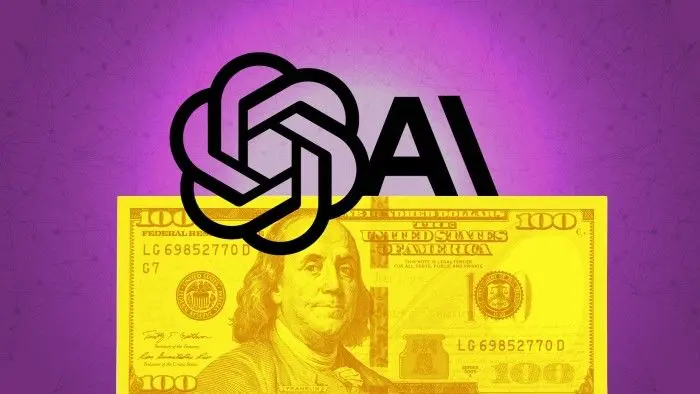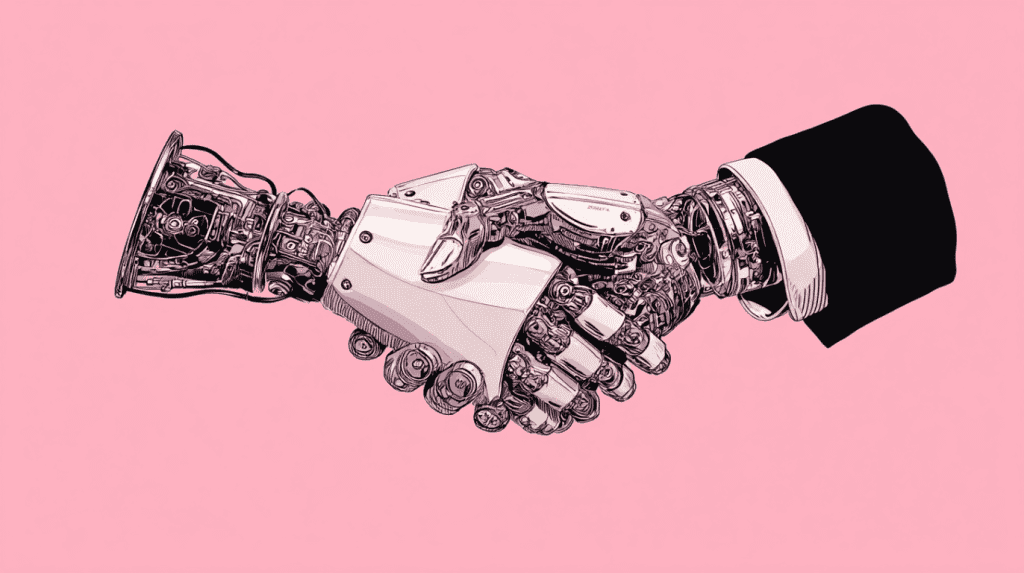AI Giants Face Insurance Hurdles Amid Mounting Legal Challenges
4 Sources
4 Sources
[1]
Insurers balk at paying out huge settlements for claims against AI firms
OpenAI and Anthropic are considering using investor funds to settle potential claims from multibillion-dollar lawsuits, as insurers balk at providing comprehensive coverage for the risks associated with artificial intelligence. The two US-based AI start-ups have traditional business insurance coverage in place, but insurance professionals said AI model providers will struggle to secure protection for the full scale of damages they may need to pay out in the future. OpenAI, which has tapped the world's second-largest insurance broker Aon for help, has secured cover of up to $300 million for emerging AI risks, according to people familiar with the company's policy. Another person familiar with the policy disputed that figure, saying it was much lower. But all agreed the amount fell far short of the coverage to insure against potential losses from a series of multibillion-dollar legal claims. Aon declined to comment on individual companies. But Kevin Kalinich, head of cyber risk at Aon, said of the insurance sector broadly, "we don't yet have enough capacity for [model] providers." He added of insurers, "what they can't afford to pay is if an AI provider makes a mistake that ends up as... a systemic, correlated, aggregated risk." The industry's reticence to provide comprehensive cover for AI companies comes from the unprecedented scale of potential claims faced by relatively young tech companies. The risk is heightened as enormous damages known as "nuclear verdicts" against big US companies have also become more common. OpenAI is currently being sued for copyright infringement by The New York Times and authors who claim their content was used to train models without consent. It is also being sued for wrongful death by the parents of a 16-year-old who died by suicide after discussing methods with ChatGPT. Two people with knowledge of the matter said OpenAI has considered "self insurance," or putting aside investor funding in order to expand its coverage. The company has raised nearly $60 billion to date, with a substantial amount of the funding contingent on a proposed corporate restructuring. One of those people said OpenAI had discussed setting up a "captive" -- a ringfenced insurance vehicle often used by large companies to manage emerging risks. Big tech companies such as Microsoft, Meta, and Google have used captives to cover Internet-era liabilities such as cyber or social media. Captives can also carry risks, since a substantial claim can deplete an underfunded captive, leaving the parent company vulnerable. OpenAI said it has insurance in place and is evaluating different insurance structures as the company grows, but does not currently have a captive and declined to comment on future plans. Anthropic has agreed to pay $1.5 billion to settle a class-action lawsuit with authors over their alleged use of pirated books to train AI models. In court documents, Anthropic's lawyers warned the suit carried the specter of "unprecedented and potentially business-threatening statutory damages against the smallest one of the many companies developing [AI] with the same books data." Anthropic, which has raised more than $30 billion to date, is partly using its own funds for the settlement, according to one person with knowledge of the matter. Anthropic declined to comment.
[2]
Insurers balk at multibillion-dollar claims faced by OpenAI and Anthropic
OpenAI and Anthropic are considering using investor funds to settle potential claims from multibillion-dollar lawsuits, as insurers balk at providing comprehensive coverage for the risks associated with artificial intelligence. The two US-based AI start-ups have traditional business insurance coverage in place, but insurance professionals said AI model providers will struggle to secure protection for the full scale of damages they may need to pay out in future. OpenAI, which has tapped the world's second-largest insurance broker Aon for help, has secured cover of up to $300mn for emerging AI risks, according to people familiar with the company's policy. Another person familiar with the policy disputed that figure, saying it was much lower. But all agreed the amount fell far short of the coverage to insure against potential losses from a series of multibillion-dollar legal claims. Aon declined to comment on individual companies. But Kevin Kalinich, head of cyber risk at Aon, said of the insurance sector broadly, "we don't yet have enough capacity for [model] providers". He added of insurers, "what they can't afford to pay is if an AI provider makes a mistake that ends up as . . . a systemic, correlated, aggregated risk". The industry's reticence to provide comprehensive cover for AI companies comes from the unprecedented scale of potential claims faced by relatively young tech companies. The risk is heightened as enormous damages known as "nuclear verdicts" against big US companies have also become more common. OpenAI is currently being sued for copyright infringement by the New York Times and authors who claim their content was used to train models without consent. It is also being sued for wrongful death by the parents of a 16-year-old who died by suicide after discussing methods with ChatGPT. Two people with knowledge of the matter said OpenAI has considered "self insurance", or putting aside investor funding in order to expand its coverage. The company has raised nearly $60bn to date, with a substantial amount of the funding contingent on a proposed corporate restructuring. One of those people said OpenAI had discussed setting up a "captive" -- a ringfenced insurance vehicle often used by large companies to manage emerging risks. Big tech companies such as Microsoft, Meta and Google have used captives to cover internet-era liabilities such as cyber or social media. Captives can also carry risks, since a substantial claim can deplete an underfunded captive, leaving the parent company vulnerable. OpenAI said it has insurance in place and is evaluating different insurance structures as the company grows, but does not currently have a captive and declined to comment on future plans. Anthropic has agreed to pay $1.5bn to settle a class-action lawsuit with authors over their alleged use of pirated books to train AI models. In court documents, Anthropic's lawyers warned the suit carried the spectre of "unprecedented and potentially business-threatening statutory damages against the smallest one of the many companies developing [AI] with the same books data". Anthropic, which has raised more than $30bn to date, is partly using its own funds for the settlement, according to one person with knowledge of the matter. Anthropic declined to comment.
[3]
Insurers hesitate at multibillion-dollar claims faced by OpenAI, Anthropic in AI lawsuits
OpenAI (OPENAI) and Anthropic (ANTHRO) are considering using investor funds to settle potential multibillion-dollar lawsuits, but insurers are hesitating at providing comprehensive coverage for the risks linked with AI, the Financial Times reported. The two companies have traditional business insurance coverage, but Insurance coverage falls far short of needed amounts for multibillion-dollar legal claims, with insurers reluctant to provide comprehensive protection due to the scale and unpredictability of risks. Both companies have considered using investor funds for settlements, exploring self-insurance, and establishing captives, though these also present limits and risks. Insurers are worried about systemic, correlated, and aggregated risks from major AI errors that could result in extremely large claims exceeding their capacity to cover.
[4]
OpenAI, Anthropic consider using investor funds to settle lawsuits- FT By Investing.com
Investing.com-- OpenAI and Anthropic are considering using investor funds to settle potential claims from several multibillion-dollar lawsuits, the Financial Times reported on Wednesday. The two may face resistance from insurers over providing comprehensive coverage for the legal risks associated with artificial intelligence, the FT reported, citing insurance professionals and people familiar with the policies. OpenAI has considered putting aside investor funding to expand its insurance coverage, the FT reported, citing two people with knowledge of the matter. The report added that OpenAI had discussed setting up a "captive" insurance vehicle, a method commonly used by big companies to manage emerging risks. OpenAI has coverage for up to $300 million for emerging AI risks from major insurance broker Aon, the FT reported, adding that its coverage fell well short of potential losses from major legal claims. OpenAI currently faces lawsuits from the New York Times (NYSE:NYT) and other authors who claim their content was used to train AI models without their consent. The startup is also being sued for wrongful death by the parents of a 16-year-old who died by suicide after allegedly discussing methods with OpenAI's ChatGPT tool. Anthropic is using part of its own funds to settle a $1.5 billion class-action lawsuit with authors over its alleged use of pirated books to train AI models, the FT report said. Both companies raised tens of billions of dollars this year, with OpenAI receiving funding commitments from SoftBank Group Corp. (TYO:9984) and NVIDIA Corporation (NASDAQ:NVDA). Microsoft Corporation (NASDAQ:MSFT) was the biggest backer of the AI firm since 2019, but was recently seen pulling back on its funding amid disagreements over OpenAI's shift to a for-profit organization. Anthropic is backed by several major tech companies, including Amazon.com Inc (NASDAQ:AMZN) and Alphabet Inc (NASDAQ:GOOGL).
Share
Share
Copy Link
OpenAI and Anthropic grapple with insufficient insurance coverage for potential multibillion-dollar lawsuits. The companies are exploring alternative risk management strategies, including self-insurance and investor funds, as traditional insurers hesitate to provide comprehensive coverage for AI-related risks.
AI Giants Struggle with Insurance Coverage
Leading artificial intelligence companies OpenAI and Anthropic are facing a significant challenge in securing adequate insurance coverage for potential multibillion-dollar lawsuits. As the AI industry grapples with unprecedented legal risks, traditional insurers are hesitating to provide comprehensive protection, forcing these tech giants to explore alternative risk management strategies
1
.
Source: FT
Current Insurance Landscape
OpenAI, which has partnered with Aon, the world's second-largest insurance broker, has reportedly secured coverage of up to $300 million for emerging AI risks. However, this amount falls far short of the potential losses from a series of multibillion-dollar legal claims the company might face
2
. Kevin Kalinich, head of cyber risk at Aon, acknowledged the industry's limitations, stating, "We don't yet have enough capacity for [model] providers."Legal Challenges and Risks
Both OpenAI and Anthropic are currently embroiled in significant legal battles. OpenAI faces copyright infringement lawsuits from The New York Times and various authors, as well as a wrongful death lawsuit related to a teenager's suicide allegedly linked to interactions with ChatGPT
1
. Anthropic has agreed to pay $1.5 billion to settle a class-action lawsuit with authors over the alleged use of pirated books to train AI models2
.
Source: Seeking Alpha
Related Stories
Alternative Risk Management Strategies
Faced with insufficient insurance options, these AI companies are considering alternative approaches to manage their legal risks:
-
Self-Insurance: OpenAI is exploring the possibility of setting aside investor funds to expand its coverage. The company has raised nearly $60 billion to date, with a substantial amount contingent on a proposed corporate restructuring
2
. -
Captive Insurance: OpenAI has reportedly discussed setting up a "captive" - a ringfenced insurance vehicle often used by large companies to manage emerging risks. Tech giants like Microsoft, Meta, and Google have used captives to cover internet-era liabilities such as cyber or social media risks
1
. -
Investor Funds: Anthropic is partly using its own funds, likely derived from investor capital, to settle the $1.5 billion class-action lawsuit
3
.
Industry Implications
The reluctance of insurers to provide comprehensive coverage for AI companies stems from the unprecedented scale of potential claims faced by these relatively young tech firms. The risk is further heightened by the increasing frequency of "nuclear verdicts" - enormous damages awarded against big US companies
2
.This situation highlights the growing pains of the AI industry as it navigates uncharted legal and financial territories. As AI technologies continue to advance and integrate into various aspects of society, the need for innovative risk management solutions becomes increasingly crucial
4
.References
Summarized by
Navi
[3]
Related Stories
Major Insurers Retreat from AI Coverage as Multi-Billion Dollar Risk Concerns Mount
24 Nov 2025•Business and Economy

Former Anthropic Exec Launches $15M AI Insurance Startup to Mitigate Risks of AI Deployment
24 Jul 2025•Business and Economy

Anthropic's $1.5 Billion Settlement Marks Landmark Victory for Authors in AI Copyright Battle
26 Sept 2025•Policy and Regulation

Recent Highlights
1
Google Gemini 3.1 Pro doubles reasoning score, beats rivals in key AI benchmarks
Technology

2
Meta strikes up to $100 billion AI chips deal with AMD, could acquire 10% stake in chipmaker
Technology

3
Pentagon threatens Anthropic with supply chain risk label over AI safeguards for military use
Policy and Regulation





